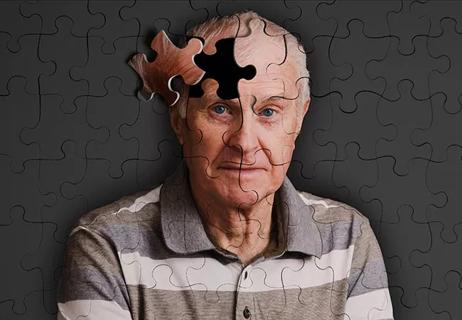A large geriatric study aims to find the answers

Research shows that, despite their age, adults treated in geriatric clinics may not perceive themselves as frail or nearing the end of life. Consequently, some older patients are insufficiently motivated to complete an advance directive or designate a healthcare proxy – steps that can help families and caregivers avoid the stress of making medical decisions on their behalf. Despite the ubiquity of the problem, the specific factors that influence the completion of advance directives remain poorly understood.
Cleveland Clinic is a non-profit academic medical center. Advertising on our site helps support our mission. We do not endorse non-Cleveland Clinic products or services. Policy
To better assess the factors that contribute to the phenomenon’s pervasiveness, a group of Cleveland Clinic nurse researchers evaluated more than 1,600 patients treated in the Geriatric Clinic of the Weston Family Health Center in Florida. The study’s primary investigator, Virginia Donofrio, RN, GERO-BC, AMB-BC, says it is the largest study of its type conducted within a U.S.-based health system.
“Our early findings indicate that advance directive documentation rates are poor, which is troubling because it illustrates how frequently patients are forgoing the opportunity to express their own healthcare preferences,” she says. “The goal of our research is to increase awareness about this universal issue and help inform specific interventions that encourage advance planning.”
The study aimed to address four major research questions using data available in patients’ electronic health records (eHRs). First, researchers analyzed the number of complete advance directives in eHRs as well as the frequency of denied, refused or blank documents. The team also assessed how often discussions about advance directives were noted in eHRs and evaluated patient characteristics and comorbidities associated with completed documentation.
For analytic purposes, patients with “complete” documentation included those who had both a living will and healthcare proxy; patients with “partial” documentation had either a living will or a healthcare proxy; and those with “no” documentation had neither a living will nor healthcare proxy on their record.
Early findings indicate that patients with complete documentation tend to be older, have more comorbid conditions and are more likely to be white. In addition, patients with complete documentation were typically 85 years or older and had a significantly higher risk of death. Surprisingly, more than 65% of patients had neither a living will nor a healthcare proxy on file.
Donofrio notes that complete documentation is typically filed in Epic as part of the patient’s eHR, which makes it accessible to providers from different medical centers when needed.
“The take-home message is that we have to improve the way we use documentation to communicate with patients and their caregivers,” she says. “We know that discussions about end-of-life care are best approached while patients are still healthy and capable of making their own decisions – but, too often, these opportunities are being missed.”
Donofrio says that the primary care setting is ideal for exploring a patient’s end-of-life wishes. “The process is best addressed in a reassuring, low-pressure environment, where the patient’s questions and concerns can be normalized,” she says. “I encourage clinicians to explain that advance directives are designed to reflect what matters most to the individual, which is a vital part of ensuring that they receive the best care possible – now and through the end of life.”
Donofrio also emphasizes that the benefits of pre-planning extend beyond the wellbeing of the patient by helping families and caregivers avoid the unnecessary strain of making healthcare decisions without the direct input of the patient. “It can be incredibly stressful to make medical decisions on behalf of someone who is too ill or incapacitated to provide guidance,” she explains. “These situations can introduce discord – and even legal conflict – that can be avoided by having an advance directive on file.”

Pilot study confirms feasibility of conducting additional research on the novel treatment

Longer hospitalization does not mean a safer, faster recovery for patients age 70+

Structured data helps identify older adults at risk for poor outcomes, defines patients who require more comprehensive assessments

Self-administered tool can be completed in 10 minutes in waiting room

Social prescribing turns leisure activities into good “medicine”

Analysis underscores how telehealth can help pinpoint elder abuse

Accurate, transparent documentation may reduce risks associated with common disorder